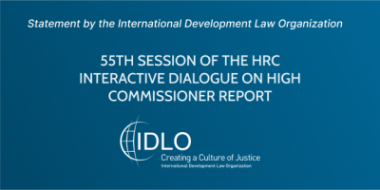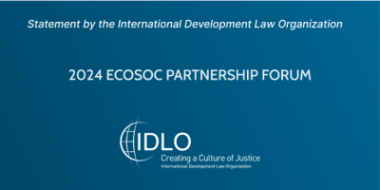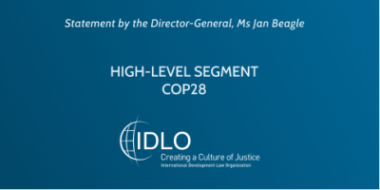Natural resources form the core of many economies around the world, providing a source of livelihood for millions of people. But the disproportionate rise in demand for these resources is raising questions about the sustainability of investments in this sector. As the commitment to a low-carbon future grows amid concerns over climate change, IDLO believes that the rule of law can facilitate efforts to tackle such grave problems with the help of robust legal frameworks. Climate change has a polarizing effect, aggravating inequalities and reducing access to justice for those most at risk.
IDLO has been exploring how legal reform can encourage sustainable investment in the energy sector and promote climate justice. IDLO's guidebook on The Role of Legal Instruments to Support Green, Low-Emission and Climate-Resilient Development, produced in partnership with United Nations agencies, provides step-by-step assistance to governments in assessing, selecting and implementing legal instruments to deliver these goals.





